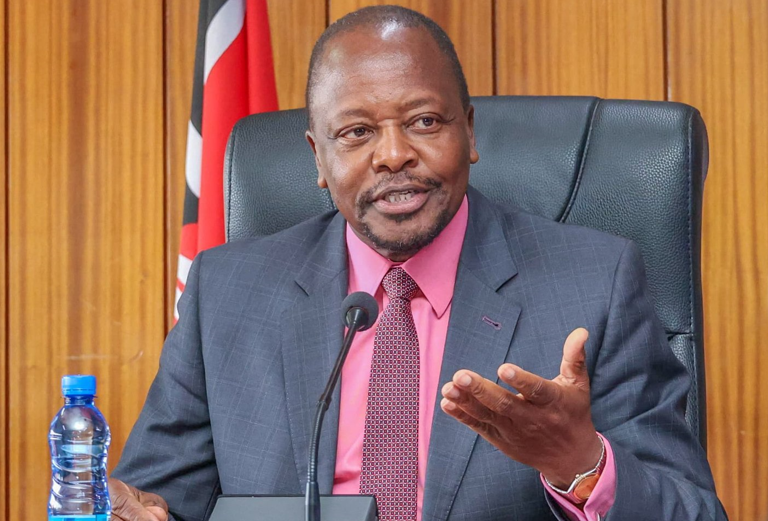Kagwe sounds alarm on powerful pesticide cartels undermining food safety efforts

The government has raised an alarm over powerful pesticide cartels aggressively sabotaging efforts to eliminate harmful agrochemicals and enforce food safety standards in the market.
Agriculture and Livestock Development Cabinet Secretary Mutahi Kagwe claimed that prominent individuals and organisations with high interests in the agrochemicals sub-sector are hell-bent on frustrating government endeavours to get rid of harmful chemicals in the market.
“We are aware that banned pesticide cartels are fighting back—through bribery of legislative and regulatory bodies, infiltration of government institutions, and the sponsorship of media articles to undermine public health reforms,” he said.
Kagwe made the remarks during the opening of the 2025 Centre for Agriculture and Bioscience International (CABI) Africa Regional Consultation in Nairobi.
The government in the recent past banned some chemicals and revoked licenses to individuals and organisations for selling dangerous chemicals, some of which have been banned in some external markets like the European Union (EU).
The EU, which is the biggest market for fresh produce from Kenya, has been very strict on food grown using banned chemicals.
Exporters have either incurred extra costs as their produce is subjected to further tests at the point of entry, or the same commodities are destroyed.
Some of the banned chemicals are said to be the biggest contributors to diseases like cancer and diabetes, leading to increased health bills for consumers.
The government’s warning highlights the high-stakes battle underway as Kenya and its African partners attempt to phase out hazardous pesticides and modernise agricultural practices.
Surprisingly, some of the chemical organisations are owned by politically correct and well-connected individuals.
The situation makes it hard to win the war against counterfeit substances in the local markets.
Kagwe’s warning came amid renewed calls for regional cooperation in tackling pesticide risks, environmental degradation, and pest-related crop losses.
Climate-smart agriculture
Hosted in Nairobi, the CABI Africa Regional Consultation brings together policymakers, scientists, and development partners to chart a continent-wide path toward safer, climate-smart agriculture.
Kenya, Kagwe said, is unwavering in its commitment to strengthening pesticide regulation, promoting sustainable inputs, and empowering farmers through knowledge and innovation.
“This is not just a policy issue—it is a fight for the health of our people, the integrity of our food systems, and the future of our environment,” he added.
Citing Kenya’s Agricultural Sector Transformation and Growth Strategy, Kagwe reaffirmed the country’s focus on climate-smart, inclusive farming, improved market access through sanitary and phytosanitary (SPS) compliance, and tighter enforcement of food safety laws.
He praised CABI, which celebrates 30 years of regional operations in Nairobi this year, for its pivotal role in combating invasive pests, reducing pesticide dependence, and driving scientific collaboration across Africa.
“From battling fall armyworm and locusts to pioneering nature-based solutions like the National Prosopis Strategy, CABI has helped anchor agricultural resilience across the continent,” Kagwe said.











